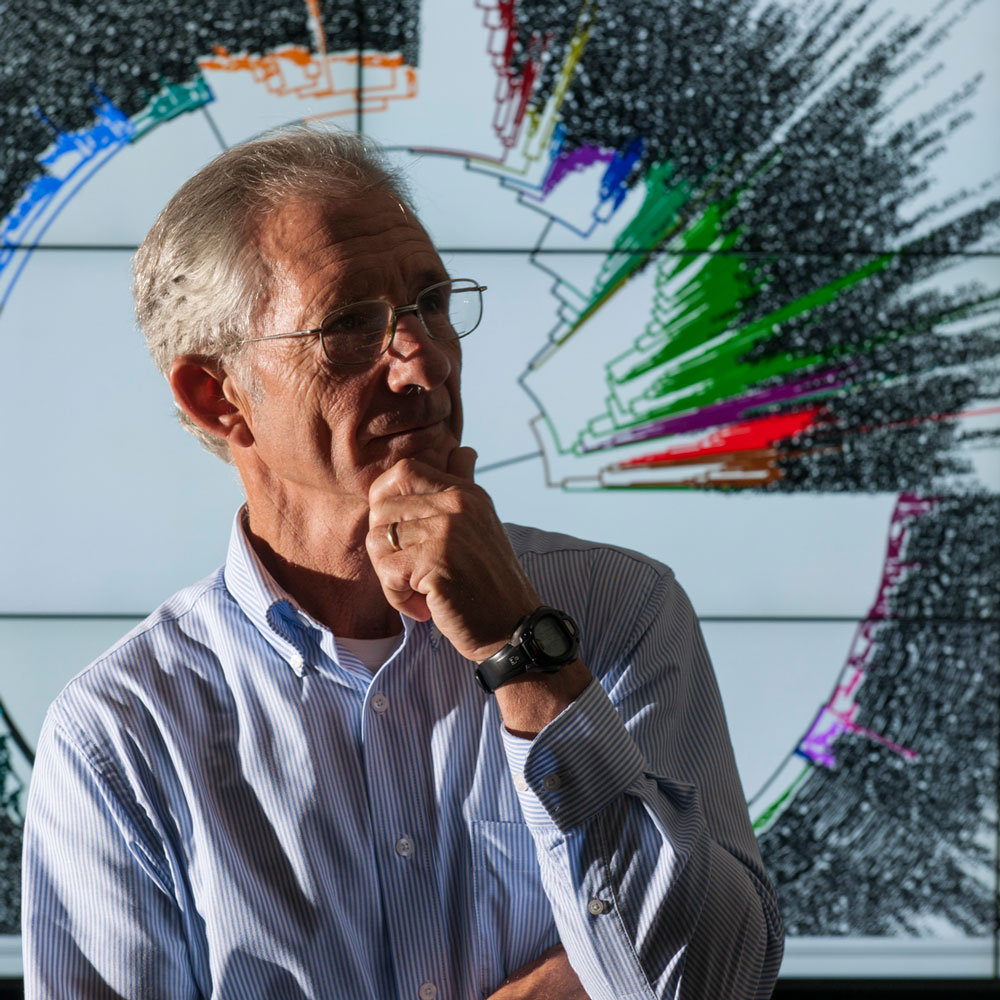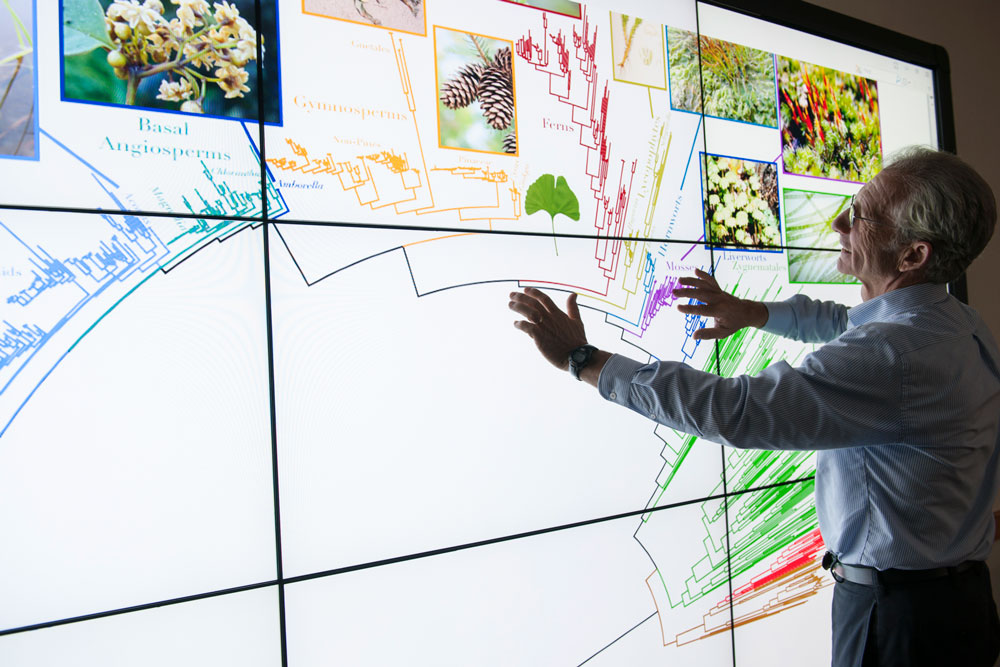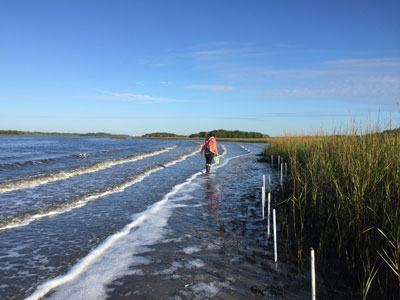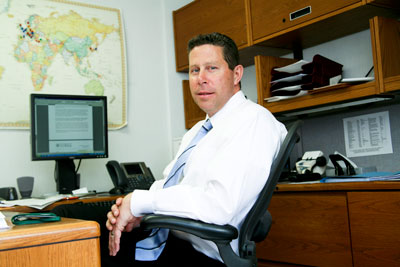
The University of Michigan and the University of Florida are rivals in the Citrus Bowl, but off the field, the universities are working together to make lives better.
 UF biologist Doug Soltis uses the Tree of Life, a map of all named species.
UF biologist Doug Soltis uses the Tree of Life, a map of all named species.
Some scientists said it couldn’t be done, but UF and Michigan researchers teamed up with colleagues around the country to make an interactive map of all 2.3 million named species. The Tree of Life, which debuted in September, is more than a catalog – it’s a tool that scientists can use to develop new approaches to challenges from climate change to disease.
After elementary school, science can turn from hands-on fun to textbooks and lectures. UF researchers realized that many science teachers wanted to make their classes more engaging, but didn’t have the time or background to plan a curriculum. Enter U-FUTuRES. Collaborating with Michigan and other institutions, UF education researchers worked with scientists across the UF campus to develop a training program for middle-school science teachers. Now their work is helping keep kids interested in science – not just as a class, but as a career.
Does your devotion to your favorite team change how you treat people? UF sport management professor Brian Mills wants to find out. Along with fellow Michigan PhD grad Scott Tainsky, Mills uses an economics experiment called the ultimatum game to reveal how affinities and rivalries influence college football fans beyond gameday. He hopes the work eventually will suggest ways that sports can build bonds between opposing sides in areas from politics to business.
 UF engineering professor Christine Angelini at Guana Tolomato Matanzas research reserve.
UF engineering professor Christine Angelini at Guana Tolomato Matanzas research reserve.
Big boats making big waves can be bad news for coastal habitats. But with a collaborative research award from Michigan’s Water Center, UF engineers are finding ways to protect these areas, starting with a three-year project in Florida’s Guana Tolomato Matanzas research reserve. By developing ways to dissipate wave energy from boat traffic, they hope to protect and restore salt marshes and oyster reefs, habitats that protect us from storm surge and flooding, improve water quality and support commercial and recreational fishing.
 Dr. David Nelson, director of UF's Clinical and Translational Science Institute, is leading a five-year study.
Dr. David Nelson, director of UF's Clinical and Translational Science Institute, is leading a five-year study.
The leading cause of liver cancer could get one step closer to a cure, thanks to a clinical trial led by UF in cooperation with Michigan, Johns Hopkins University and the University of North Carolina. The $15.5 million, five-year study will evaluate three medications for hepatitis C, which affects about 150 million people worldwide.